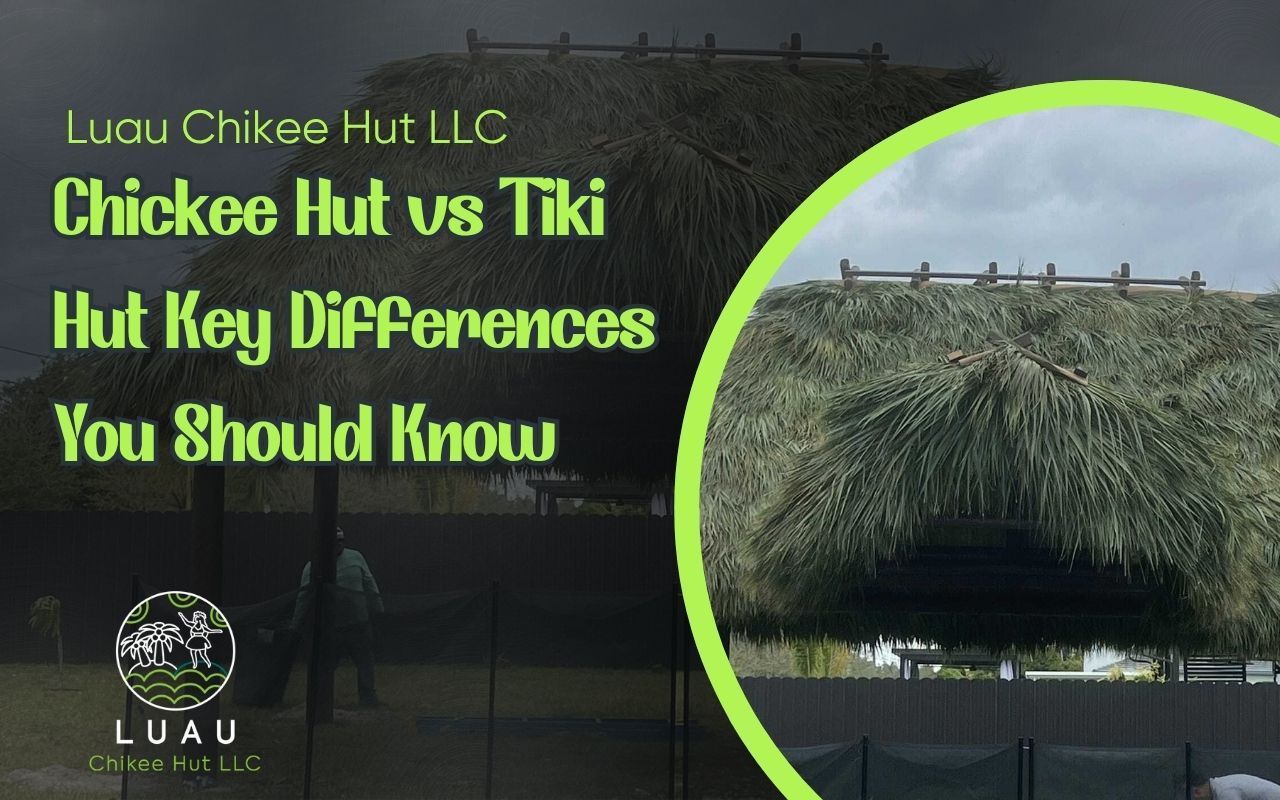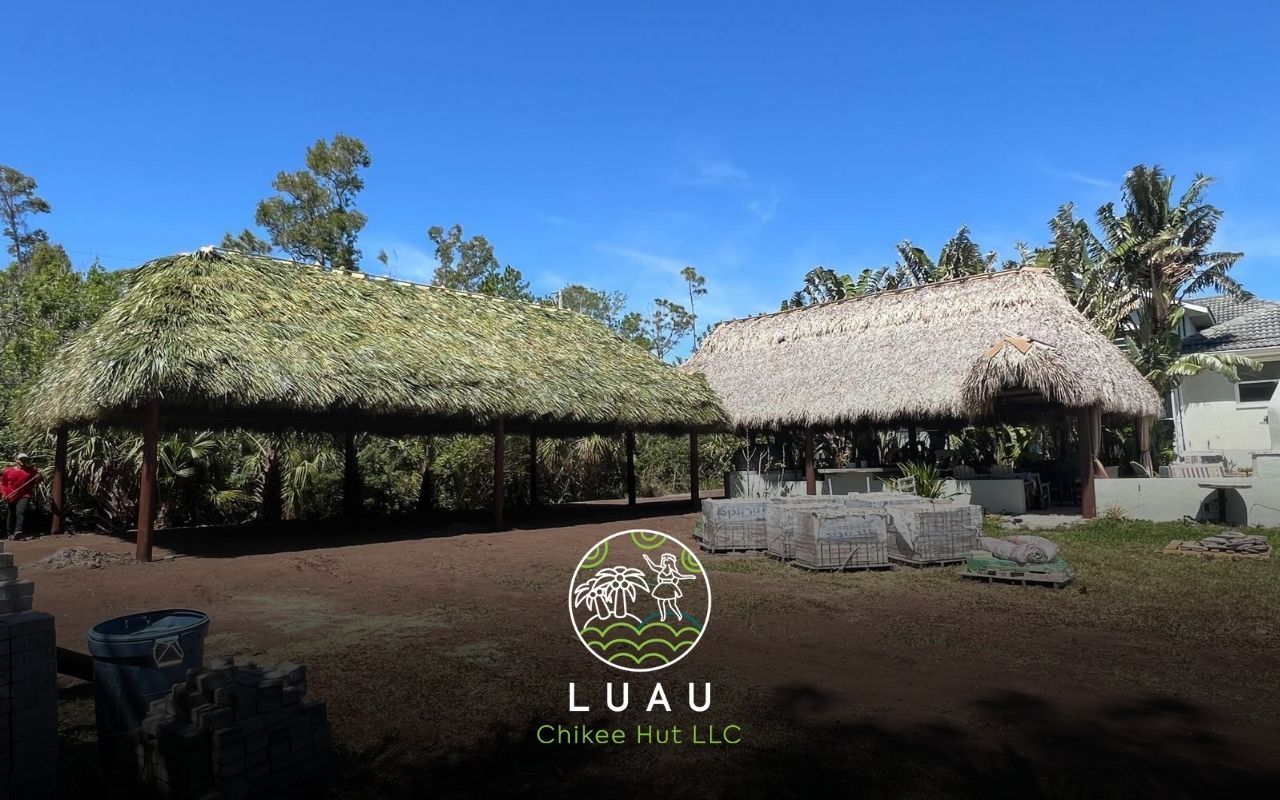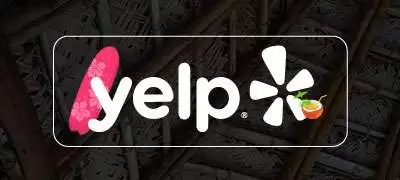
If you’re planning to build a unique outdoor structure, the chickee hut vs tiki hut debate might come up. While both offer shade and style, they come from very different origins and serve different purposes. Understanding these differences helps you choose the best fit for your backyard or business.
At Luau Chikee Hut LLC, we specialize in authentic hut designs across Monroe County and beyond. Let’s break down what sets these two hut styles apart—and how to decide which is right for you.
Comparing the Structure and Features of Each Hut
Chickee Hut Features
A native chickee hut has deep roots in Seminole history. These huts are traditionally built without nails, using cypress poles and hand-woven palm thatch. They’re often open-sided and elevated on stilts to withstand swampy terrain and hot climates.
Chickee huts are:
- Naturally ventilated
- Culturally significant
- Crafted using sustainable materials
The Everglades hut design is one of the most recognized chickee styles in Florida, popular for waterfront homes and resorts.
Tiki Hut Construction Basics

On the other hand, tiki hut construction draws inspiration from Polynesian aesthetics. These huts often feature bamboo, exotic hardwoods, and decorative elements that make them perfect for themed bars, patios, or restaurants. Their look is more stylized, ideal for tropical ambiance rather than traditional craftsmanship.
Material Choices and Roofing Styles
Outdoor Hut Materials
Both hut styles use organic materials, but they differ in texture and structure. Chickee huts rely heavily on palm thatch and cypress, while tiki huts may use bamboo poles and synthetic thatch for durability and design consistency.
Choosing the right outdoor hut materials affects how your hut performs in different climates. Chickee huts, for example, are naturally designed for Florida’s hot, humid conditions.
Thatch Roof Styles
Thatch roofing varies significantly between the two. Chickee huts use hand-laid palm fronds that require maintenance but offer authentic charm. Tiki huts often feature machine-processed thatch or synthetic panels, providing a more uniform look with lower upkeep.
You can learn more about tiki roofing and frame materials in our tiki hut building guide.
Pros and Cons – Tiki vs Chickee Huts
Tiki vs Chickee Pros
Each style has its own strengths:
Chickee Huts Pros:
- Natural cooling
- Cultural significance
- Built by certified native craftsmen
Tiki Huts Pros:
- Customizable aesthetic
- Matches themed decor
- Wider design variations
The choice depends on your goals—whether you value authenticity or themed atmosphere. For customers in Florida, our custom chickee hut builders can help you evaluate both options.
Chickee Huts in Monroe County
Local Style and Regulations
In places like Monroe County, choosing between chickee and tiki huts may also involve local codes and community preferences. Chickee huts, in particular, are often exempt from building permits due to their tribal origin—something to keep in mind if you’re building near the Keys.
Our Monroe County tiki hut experts can walk you through design, installation, and compliance—making your hut project smooth and stress-free.
FAQs – Chickee Hut vs Tiki Hut
What’s the main difference between a chickee hut and a tiki hut?
Chickee huts are native structures built by the Seminole Tribe with palm thatch and cypress, while tiki huts are stylized, tropical-themed shelters often using bamboo and synthetic materials.
Are chickee huts better for hot weather?
Yes. Chickee huts are built for natural ventilation and heat resistance, making them ideal for Florida’s climate.
Do I need a permit for a chickee hut?
In many areas, including parts of Florida, chickee huts are exempt from permits when built by authorized tribal contractors.
Need Help Choosing the Right Hut?
Whether you’re drawn to the authentic charm of a native chickee or the tropical flair of a tiki hut, Luau Chikee Hut LLC is here to help. Our team builds long-lasting huts with attention to tradition, design, and local climate.
We proudly serve Monroe County and the surrounding area with expert guidance and custom construction. Contact us today for a free consultation and bring your dream hut to life.



